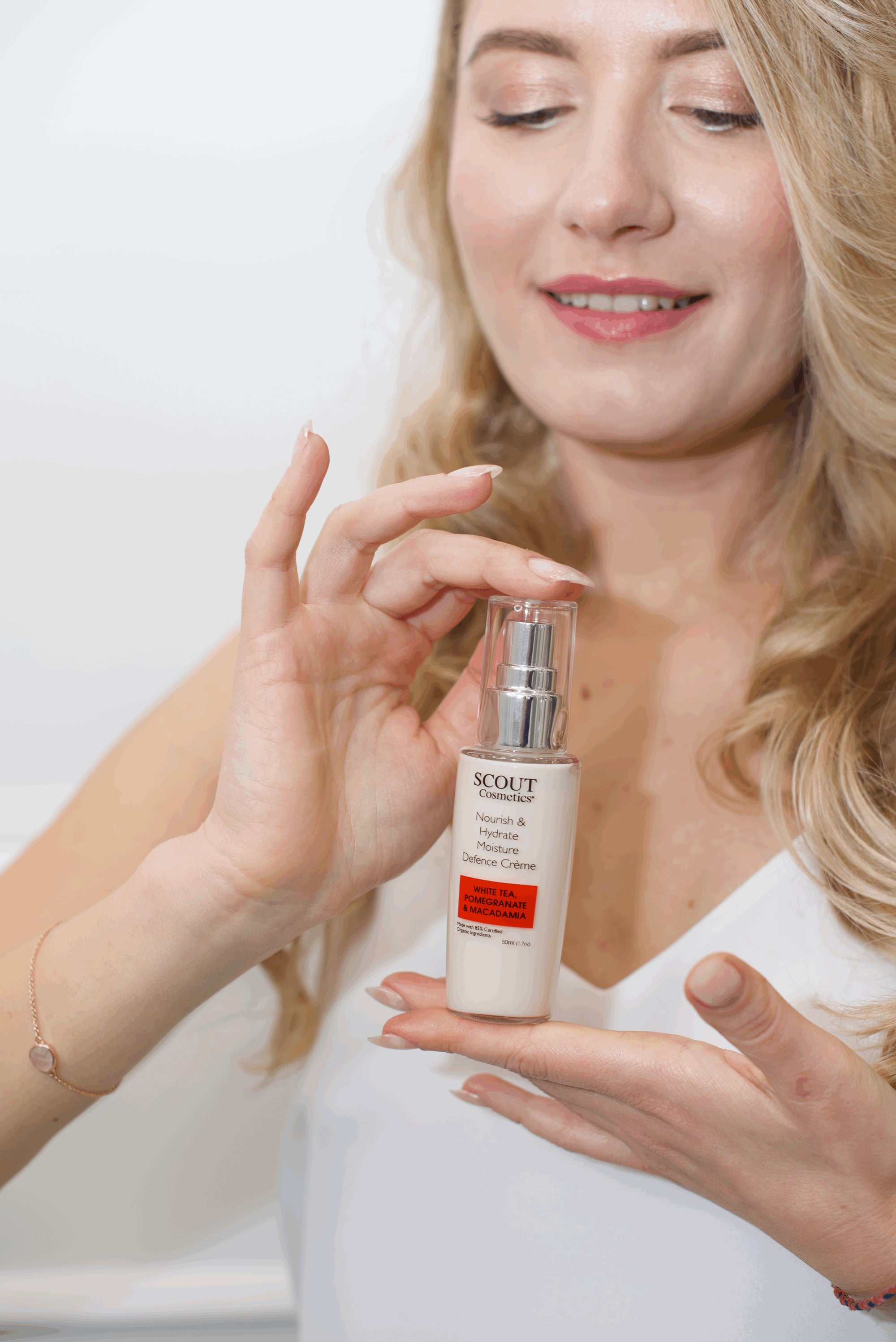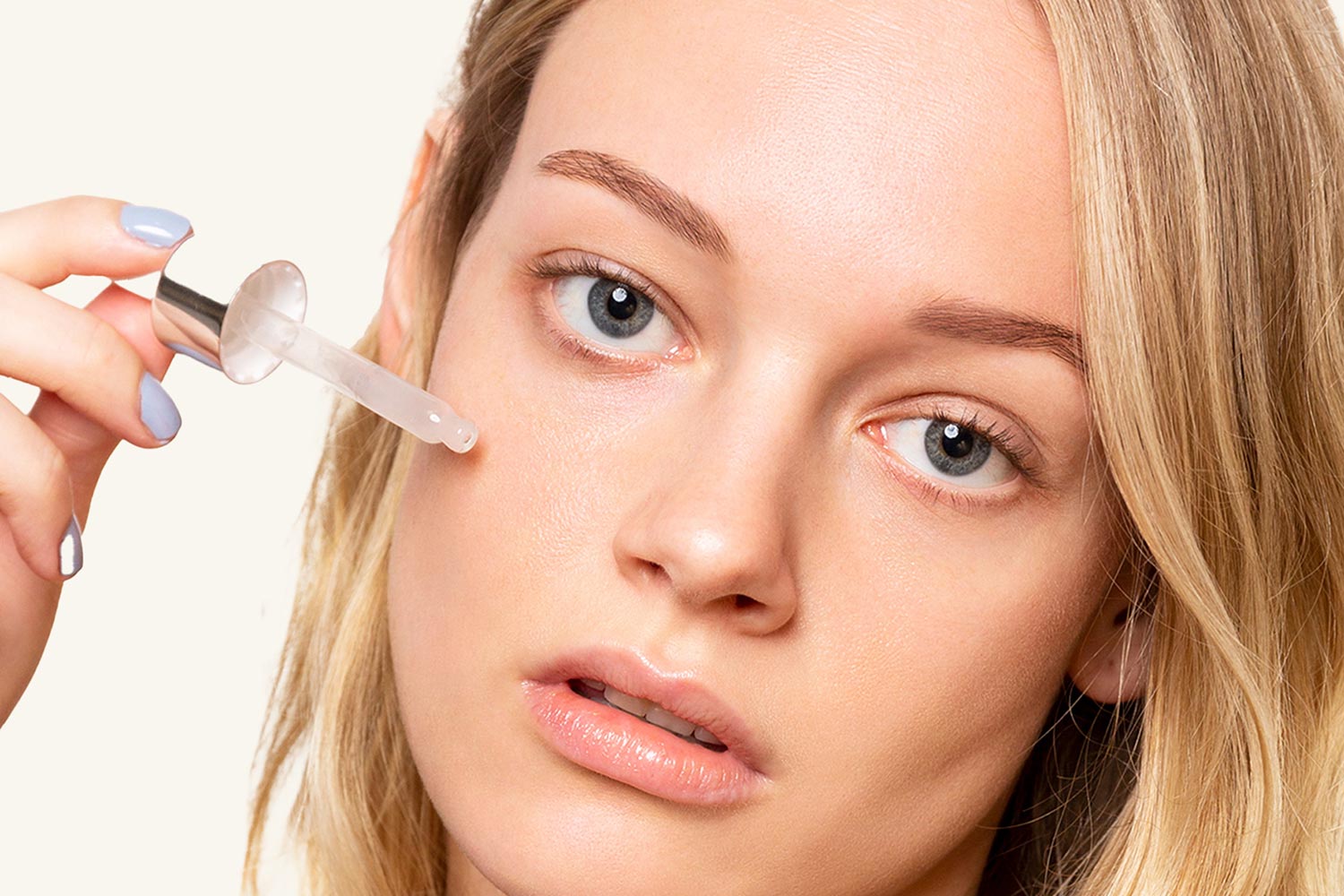
Top Secret Vitamin C Tip
If you have every wondered; why all the fuss about Vitamin C serums, read on!
This blog explains both why Vitamin C skincare is so special and most importantly, why it must be delivered directly to your skin surface to be effective.
Why is topical Vitamin C important for healthy skin?
The scientific evidence is in, topical Vitamin C is a powerhouse skincare ingredient that may help slow early skin ageing, prevent sun damage and improve the appearance of wrinkles, dark spots, and acne.
As an antioxidant, Vitamin C fights harmful free radicals that attack your skin. Think external sources like air pollution and sun damage but also from inside the body as a result of natural metabolism processes.
There is plenty of evidence that free radicals can damage the skin and applying topical Vitamin C can help combat free radicals and may improve the skin’s over-all appearance.
Why apply to the skin?
Did you know Vitamin C is the most abundant antioxidant in human skin?
When we eat or drink, supplement Vitamin C, our skin only gets a tiny fraction of its value because it cannot be synthesised in our bodies. We must therefore rely entirely on applying directly to the area.
So, pressing Vitamin C in serum form onto the skin allows our skin to absorb more of it in an effective way.
And remember, always apply a Vitamin C serum to clean, moisturized skin.
Skin benefits of Vitamin C
Vitamin C is needed for collagen biosynthesis and is widely thought to have an antiaging effect. Many clinical studies have demonstrated that Vitamin C improves wrinkles when used consistently over time.
For example, a survey of studies indicates positive results appear from daily use of a Vitamin C formulation for at least three months to improve the look of fine and noticeable wrinkles on the face and neck, and to improve texture and appearance.
Vitamin C may also help protect the skin from ultraviolet sunlight, especially when used with a broad-spectrum sunscreen.
I’m pretty sure you are reading this and thinking, I need some! Am I right?
A bit of Vitamin C serum science?
No matter what form it takes, Vitamin C can break down when exposed to factors such as air, heat, and light. The solution is creating a serum which will make the Vitamin C stable for a lengthy period.
Some formulations contain ascorbic acid, which is the natural form of Vitamin C. The skin absorbs ascorbic acid well, but it does not always work well when mixed with certain solutions. Ascorbyl palmitate has more stability when mixed with other solutions, but the skin absorbs it less effectively.
Other serum formulations package Vitamin C in the form of Sodium Ascorbyl Phosphate because it is stable and can deliver higher Vitamin C concentrations which the skin absorbs quickly and deeply.
One well known natural source and my favourite is Kakadu Plum which has the highest recorded source of Vitamin C in the world! Did you know it contains up to 75 times more Vitamin C than well-known citrus fruits!
Vitamin C may also be readily combined with other known antioxidants to supercharge the effect of a serum.
Vitamin C Brightening Serum with Kakadu Plum, Turmeric & Rosehip
Learn about Vitamin C Brightening Serum with Kakadu Plum, Turmeric & Rosehip
How does topical Vitamin C fight free radical damage?
The science is a little complex but the first thing to understand is how topical Vitamin C works in the interaction between free radicals and antioxidants in the body.
Free radical molecules are created as a by-product of oxygen metabolism when we create energy at the cellular level in the body. The free radical is formed when the oxygen molecule loses one electron and this process may be promoted by pollutants, sunlight, radiation or diet.
Free radicals drift around the skin cells looking for electrons to rebalance them but may also take electrons from normal healthy cells thus causing a breakdown in these cells.
The body produces antioxidants that come to the rescue to protect healthy cells by providing an electron to the free radicals and these can be augmented by serums.
Speaking of cells, topical Vitamin C protects the skin from UV damage from lengthy sun exposure by reducing free radical formation on sun effected cells. While UV light may also act to decrease the naturally occurring Vitamin C levels in the skin, it can be replenished by topical application.
Protect yourself from the damage of inflammation.
Vitamin C may also reduce the presence of dark spots by arresting the production of pigment. Many clinical trials, now report majority improvement in dark spots with regular topical application and with very little irritation or other side effects.
There is also growing evidence for help with acne through Vitamin C’s anti-inflammatory properties helping clear blocked pores from oil production within the skin.
Skin Perfecting Radiance Gel with Lilli Pilli, Licorice, Emu Apple and Vitamin C
Learn about Skin Perfecting Radiance Gel with Lilli Pilli, Licorice, Emu Apple and Vitamin C
Tips on who shouldn't use Vitamin C products?
Vitamin C can also be very acidic and cause skin irritation particularly in high concentrations.
As it has mainly been studied in adults it is not recommended for children
While I have not experienced them myself, as with any product, some people may have reactions when using Vitamin C serum or introducing it into a routine. Some of the most common include:
- itching
- inflammation and redness
- skin irritation
- slight burning tingling sensation
Such sensations should be relatively mild and not last long. If you have sensitivity or a known allergy, I always recommend a patch test or consult your doctor before using any product. If you have acne-prone or oily skin, look for a formulation that is lighter on the skin and pores.
When applying Vitamin C serum topically for the first time, apply a thin layer every other day and gradually increase to daily applications.
Also, combining Vitamin C with other actives such as retinol has the possibility to irritate and if you use a product containing retinol it may be wise to use the Vitamin C serum in the morning and the retinol product at night.
A few final thoughts
Although Vitamin C serum is definitely not a substitute for sunscreen (in fact, sun sensitivity increases with use), the two together can work in tandem to boost the skin’s protection from damage.
Not everything we find out from the internet may be 100% correct and it is good to be a little sceptical when it comes to your health.
I have read a lot recently about the ‘reservoir effect’ and Vitamin C. The basic idea seems to be that a skincare product may be formulated with a form of Vitamin C that is not easily absorbed through the layers of skin cells because the molecule size is too big to be absorbed. Consequently, most of the product remains on the surface of the skin to form a long-term ‘reservoir’ that may provide skin-nourishing benefits later.
It seems to me that a lot more explanation and human research is needed on the possible benefits of this one as it does not resonate well.
Sylvie xx







